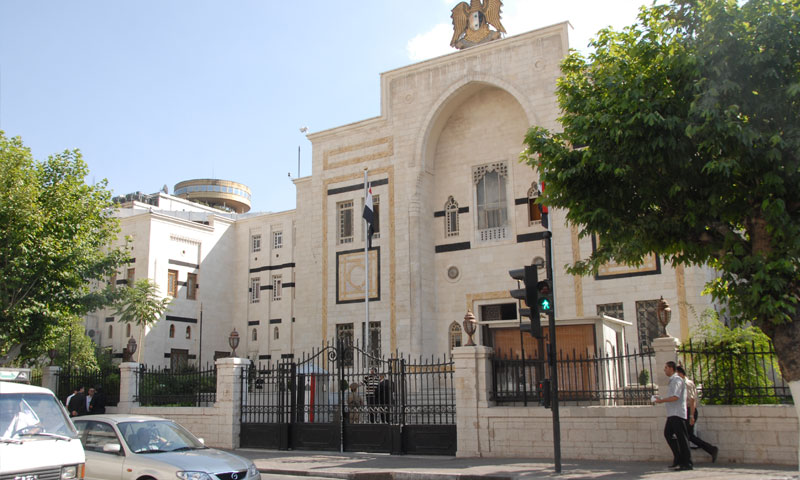Gazwan Korunfol
The function of the law is usually to regulate and protect rights such as the right to life, freedom of expression, peaceful assembly, access to information, adequate housing, and property ownership, among many others. However, in Syria, the law has become a means and tool to deprive people of their rights and determine mechanisms for doing so. In a country where the state has transformed into a “Mafia cartel,” controlled by one of its families, aligning with the interests of major international powers to ensure its sustainability.
The Controversial Law
Recently, the Syrian Parliament majority passed a law regarding the “management and investment of confiscated movable and immovable assets based on court rulings.” The law assigns the Ministry of Finance the role of managing and investing the confiscated assets of citizens (considered terrorists) when those assets are located within the planned areas of cities and towns.
If the assets are located outside the planned areas, their management and investment responsibility is entrusted to the Ministry of Agriculture and Agricultural Reform. All of this occurs after transferring ownership of these assets to public entities of an administrative nature (such as ministries, directorates, divisions, and municipalities), without any financial compensation to the general treasury. Alternatively, the assets can be transferred to public entities of an economic nature (such as banks and government-owned companies with economic activities) in exchange for paying taxes and fees to the general treasury.
Unprecedented Legislation
This law not only contradicts the constitutional provisions related to property rights and their protection, which have been neglected and trampled upon by the regime’s military force, but it is also a legislative precedent that may be unique to the world’s gangster states. To the best of my legal knowledge and experience, never before has a state enacted a law to plunder the properties of its citizens and determine methods for distributing those spoils among its mafia gangs and family members.
This law is equally as dangerous as Law No. “10,” which, under the guise of urban and destroyed areas’ reorganization, allows for looting and meddling with demographics. However, Law No. “10” leaves a way for the meager possibility of retrieving confiscated properties within complex and difficult conditions. In contrast, this new law completely shuts the door on any hope of ever recovering the confiscated assets. It not only maintains the status quo but also utilizes the assets and their revenues, closing the paths for the return of forcibly displaced individuals and obstructing any political settlement as long as this regime remains part of it.
A Law Legalizing Plunder
If we deepen our understanding and imagine the contents and objectives of this law, it will create a picture of a league of humans who have appointed themselves as the heirs of a person named “Citizen.” They coerce a court, lacking the minimum level of independence and fair trial requirements, into branding that person as a laborer or a terrorist and seizing their assets. This law subsequently takes charge of liquidating those assets and distributing them as desired by this league. It is as if the owner of those assets has already died, with their estate being inventoried and distributed among these supposed heirs.
Have you heard of the famous “Thieves’ Market” in Damascus or the “Sunni Market,” where looted goods are openly sold on the streets at the cheapest prices? This law is precisely the legalization of plundering the assets of citizens who have expressed opposition to the regime’s approach. Their assets were violated, but this behavior is not random or incidental to this authority. The citizen’s life and rights have always been violated even before their properties, as they have been killed, tortured, and displaced without any repercussion.
The Power Holders and The Law
In a gang state like Syria, you cannot analyze a law academically to assess its legitimacy and constitutionality. You cannot disassemble its texts to understand its objectives or correct its social vulnerabilities or damages. All of this is meaningless and inconsequential. You cannot read the law and understand its objectives in isolation from the authoritarian environment. Instead, you must exert double effort to explore the regime’s intentions behind its issuance as one of the tools to subjugate society.
What governs Syria is one law: the law of plundering freedoms, constitutional rights, property rights, national wealth, the economy, and financial resources, as well as the dignity, positions, honor, and lives of its citizens. This law tells us that everything is permissible as long as you have the necessary power to achieve it. It is essentially a law of gangs and mafia networks and cannot naturally be a law for a state that values the weight of its citizens and their rights.











